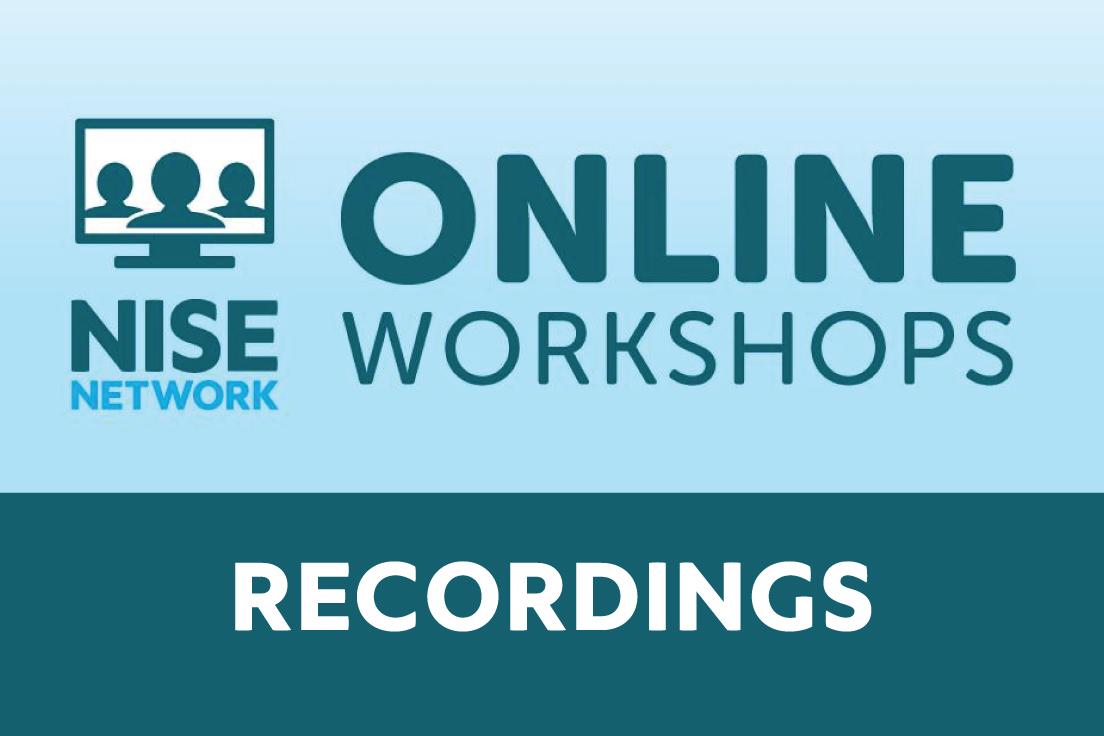DESCRIPTION
This workshop was recorded on 4-4-23
“Hello, can you hear me?” Did you just get a call or a text, post a photo on social media, or rent a scooter using your phone? Imagine how many things you do each day that require information—a message, location, or a payment—being sent wirelessly using radio waves. Despite their everyday role in our modern lives, many of us are unfamiliar with how radio waves are generated, interact with our surroundings, or are used in essential communication and navigation technology.
During this online workshop, we discussed the “Making Waves with Radio” project that is bringing together STEM professionals from academia, industry, and informal education to create museum activities, apps, and camp curriculum, to engage public audiences about radio technologies. Five new museum activities were showcased—developed by NISE Network partner museums and BSCS Science Learning—along with training videos and apps to help educators add this content to their public programming.
Presenters:
Darrell Porcello, Ph.D., Children's Creativity Museum & Lawrence Hall of Science, University of California, Berkeley
Sherry Hsi, Ph.D., BSCS Science Learning
Ali Jackson, Sciencenter, Ithaca, NY
Steve Scholle, Museum of Life and Science, Durham, NC
David Knudsen, Museum of Life and Science, Durham, NC
DESCRIPTION
This workshop was recorded on 4-4-23
“Hello, can you hear me?” Did you just get a call or a text, post a photo on social media, or rent a scooter using your phone? Imagine how many things you do each day that require information—a message, location, or a payment—being sent wirelessly using radio waves. Despite their everyday role in our modern lives, many of us are unfamiliar with how radio waves are generated, interact with our surroundings, or are used in essential communication and navigation technology.
During this online workshop, we discussed the “Making Waves with Radio” project that is bringing together STEM professionals from academia, industry, and informal education to create museum activities, apps, and camp curriculum, to engage public audiences about radio technologies. Five new museum activities were showcased—developed by NISE Network partner museums and BSCS Science Learning—along with training videos and apps to help educators add this content to their public programming.
Presenters:
Darrell Porcello, Ph.D., Children's Creativity Museum & Lawrence Hall of Science, University of California, Berkeley
Sherry Hsi, Ph.D., BSCS Science Learning
Ali Jackson, Sciencenter, Ithaca, NY
Steve Scholle, Museum of Life and Science, Durham, NC
David Knudsen, Museum of Life and Science, Durham, NC
TRAINING VIDEOS
Credits
This material is based upon work supported by the National Science Foundation under Grant Number DRL 2053160. Any opinions, findings, and conclusions or recommendations expressed in this material are those of the author(s) and do not necessarily reflect the view of the National Science Foundation.
Creative Commons Attribution Non-Commercial Share Alike 3.0 United States (CC BY-NC-SA 3.0 US).
View more details

NISE Network products are developed through an iterative collaborative process that includes scientific review, peer review, and visitor evaluation in accordance with an inclusive audiences approach. Products are designed to be easily edited and adapted for different audiences under a Creative Commons Attribution Non-Commercial Share Alike license. To learn more, visit our Development Process page.


